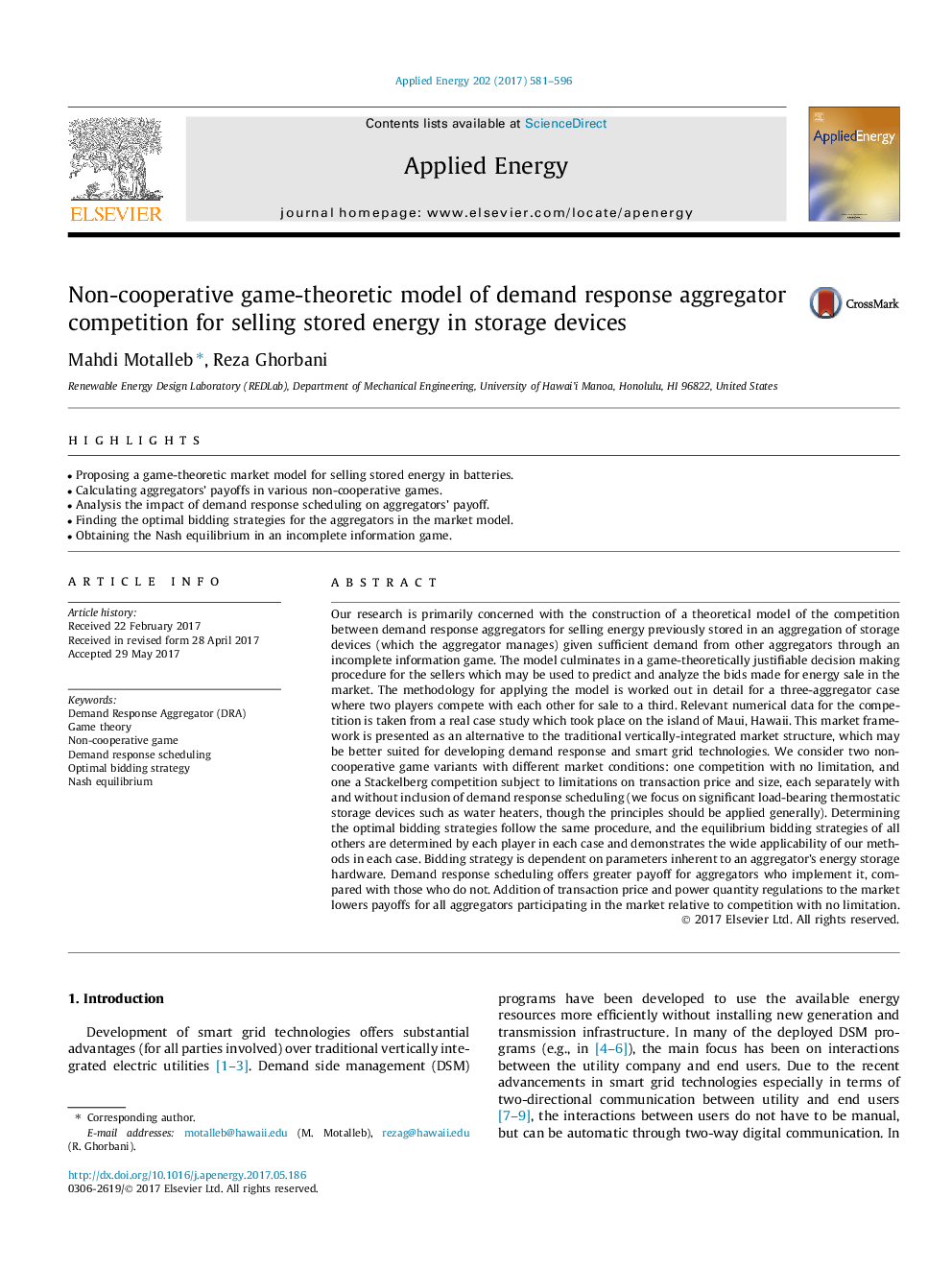| کد مقاله | کد نشریه | سال انتشار | مقاله انگلیسی | نسخه تمام متن |
|---|---|---|---|---|
| 4915976 | 1428088 | 2017 | 16 صفحه PDF | دانلود رایگان |
عنوان انگلیسی مقاله ISI
Non-cooperative game-theoretic model of demand response aggregator competition for selling stored energy in storage devices
ترجمه فارسی عنوان
مدل بازی تئوری غیر رقابتی رقابت جمع کننده پاسخ تقاضا برای فروش انرژی ذخیره شده در دستگاه های ذخیره سازی
دانلود مقاله + سفارش ترجمه
دانلود مقاله ISI انگلیسی
رایگان برای ایرانیان
کلمات کلیدی
موضوعات مرتبط
مهندسی و علوم پایه
مهندسی انرژی
مهندسی انرژی و فناوری های برق
چکیده انگلیسی
Our research is primarily concerned with the construction of a theoretical model of the competition between demand response aggregators for selling energy previously stored in an aggregation of storage devices (which the aggregator manages) given sufficient demand from other aggregators through an incomplete information game. The model culminates in a game-theoretically justifiable decision making procedure for the sellers which may be used to predict and analyze the bids made for energy sale in the market. The methodology for applying the model is worked out in detail for a three-aggregator case where two players compete with each other for sale to a third. Relevant numerical data for the competition is taken from a real case study which took place on the island of Maui, Hawaii. This market framework is presented as an alternative to the traditional vertically-integrated market structure, which may be better suited for developing demand response and smart grid technologies. We consider two non-cooperative game variants with different market conditions: one competition with no limitation, and one a Stackelberg competition subject to limitations on transaction price and size, each separately with and without inclusion of demand response scheduling (we focus on significant load-bearing thermostatic storage devices such as water heaters, though the principles should be applied generally). Determining the optimal bidding strategies follow the same procedure, and the equilibrium bidding strategies of all others are determined by each player in each case and demonstrates the wide applicability of our methods in each case. Bidding strategy is dependent on parameters inherent to an aggregator's energy storage hardware. Demand response scheduling offers greater payoff for aggregators who implement it, compared with those who do not. Addition of transaction price and power quantity regulations to the market lowers payoffs for all aggregators participating in the market relative to competition with no limitation.
ناشر
Database: Elsevier - ScienceDirect (ساینس دایرکت)
Journal: Applied Energy - Volume 202, 15 September 2017, Pages 581-596
Journal: Applied Energy - Volume 202, 15 September 2017, Pages 581-596
نویسندگان
Mahdi Motalleb, Reza Ghorbani,
